A word about Asperger from Autism Speaks
 The 8th Annual Fort Myers Film Festival wrapped on March 25 at the Broadway Palm Dinner Theatre with a champagne and dessert awards ceremony, and taking top honors as Best Strictly Local Film was Talia, a 26-minute documentary by filmmaker Rozzi Newman Osterman about a young lady in Cape Coral with a form of autism who is using acting to function in society. That young woman is Talia Anderson (although she prefers to go by Tal) and at age 3, she was diagnosed with Asperger syndrome — a
The 8th Annual Fort Myers Film Festival wrapped on March 25 at the Broadway Palm Dinner Theatre with a champagne and dessert awards ceremony, and taking top honors as Best Strictly Local Film was Talia, a 26-minute documentary by filmmaker Rozzi Newman Osterman about a young lady in Cape Coral with a form of autism who is using acting to function in society. That young woman is Talia Anderson (although she prefers to go by Tal) and at age 3, she was diagnosed with Asperger syndrome — a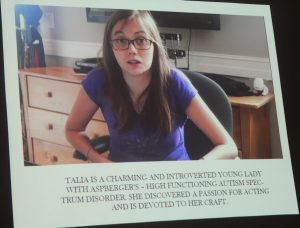 developmental disorder on the higher-functioning end of the autism spectrum.
developmental disorder on the higher-functioning end of the autism spectrum.
The developmental disorder was first diagnosed in 1944 when an Austrian pediatrician named Hans Asperger described four young patients with similar social difficulties. Although their intelligence appeared normal, the children lacked nonverbal communication skills and failed to demonstrate empathy with  their peers. Their manner of speech was either disjointed or overly formal, and their all-absorbing interests in narrow topics dominated their conversations. The children also shared a tendency to be clumsy.
their peers. Their manner of speech was either disjointed or overly formal, and their all-absorbing interests in narrow topics dominated their conversations. The children also shared a tendency to be clumsy.
However, because Dr. Asperger published his observations in German, they remained little known until 1981. In that year, an English physician by the name of Lorna Wing published a series of case studies of children with similar symptoms. Wing’s writings on “Asperger syndrome” were widely published and popularized, but it was not until 1994 that Asperger syndrome was added to the fourth edition of the Diagnostic and Statistical Manual of Mental Disorders (DSM-4),  the American Psychiatric Association’s diagnostic reference book.
the American Psychiatric Association’s diagnostic reference book.
There can be considerable overlap in the diagnostic symptoms of Asperger and that of other forms of ASD among children and adults who have normal intelligence and no significant language delay. So-called “high functioning autism” and Asperger syndrome share similar challenges and benefit from similar treatment approaches.
Asperger syndrome often remains undiagnosed until a child or adult begins to have serious difficulties in school, the workplace or their personal lives.
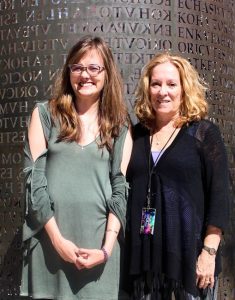 Indeed, many adults with Asperger syndrome receive their diagnosis when seeking help for related issues such as anxiety or depression. Diagnosis tends to center primarily on difficulties with social interactions.
Indeed, many adults with Asperger syndrome receive their diagnosis when seeking help for related issues such as anxiety or depression. Diagnosis tends to center primarily on difficulties with social interactions.
Children with Asperger syndrome tend to show typical or even exceptional language development. However, many use their language skills inappropriately or awkwardly in conversations or social situations such as interacting with their peers. Often, the symptoms of Asperger syndrome are confused with those of other behavioral issues such as attention deficit and hyperactivity disorder (ADHD). In fact, many persons affected by 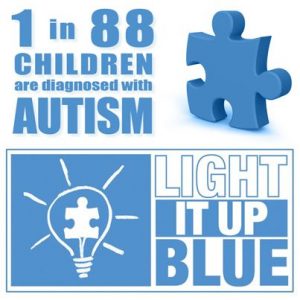 Asperger syndrome are initially diagnosed with ADHD until it becomes clear that their difficulties stem more from an inability to socialize than an inability to focus their attention.
Asperger syndrome are initially diagnosed with ADHD until it becomes clear that their difficulties stem more from an inability to socialize than an inability to focus their attention.
For instance, someone with Asperger syndrome might initiate conversations with others by extensively relating facts related to a particular topic of interest. He or she may resist discussing anything else and have difficulty allowing others to speak. Often, they don’t notice that others are no longer listening or are uncomfortable with the topic.  They may lack the ability to “see things” from the other person’s perspective.
They may lack the ability to “see things” from the other person’s perspective.
Another common symptom is an inability to understand the intent behind another person’s actions, words and behaviors. So children and adults affected by Asperger syndrome may miss humor and other implications. Similarly, they may not instinctually respond to such “universal” nonverbal cues such as a  smile, frown or “come here” motion.
smile, frown or “come here” motion.
For these reasons, social interactions can seem confusing and overwhelming to individuals with Asperger syndrome. Difficulties in seeing things from another person’s perspective can make it extremely difficult  to predict or understand the actions of others. They may not pick up on what is or isn’t appropriate in a particular situation. For instance, someone with Asperger syndrome might speak too loudly when entering a church service or a room with a sleeping baby – and not understand when “shushed.”
to predict or understand the actions of others. They may not pick up on what is or isn’t appropriate in a particular situation. For instance, someone with Asperger syndrome might speak too loudly when entering a church service or a room with a sleeping baby – and not understand when “shushed.”
Some individuals with 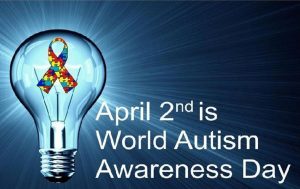 Asperger syndrome have a peculiar manner of speaking. This can involve speaking overly loud, in a monotone or with an unusual intonation.
Asperger syndrome have a peculiar manner of speaking. This can involve speaking overly loud, in a monotone or with an unusual intonation.
It is also common, but not universal, for people with Asperger syndrome to have difficulty controlling their emotions. They may cry or laugh easily or  at inappropriate times.
at inappropriate times.
Another common, but not universal, sign is an awkwardness or delay in motor skills. As children, in particular, they may have difficulties on the playground because they can’t catch a ball or understand how to swing on the monkey bars despite their peers’ repeated attempts to teach them.
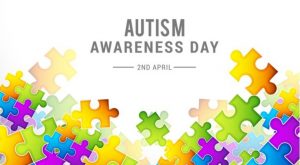 Not all individuals with Asperger syndrome display all of these behaviors. In addition, each of these symptoms tends to vary widely among affected individuals.
Not all individuals with Asperger syndrome display all of these behaviors. In addition, each of these symptoms tends to vary widely among affected individuals.
It is very important to note that the challenges presented by Asperger Syndrome are very often accompanied by unique gifts. Indeed, a 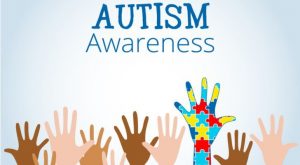 remarkable ability for intense focus is a common trait.
remarkable ability for intense focus is a common trait.
The following behaviors are often associated with Asperger syndrome. However, they are seldom all present in any one individual and vary widely in degree:
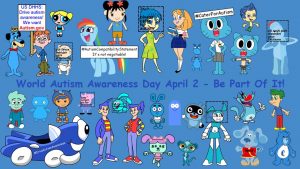 limited or inappropriate social interactions
limited or inappropriate social interactions- “robotic” or repetitive speech
- challenges with nonverbal communication (gestures, facial expression, etc.) coupled with average to above average verbal skills
- tendency to discuss self rather than others
- inability to understand social/emotional issues
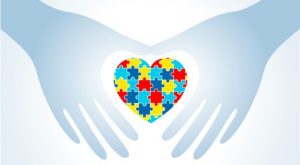 or nonliteral phrases
or nonliteral phrases - lack of eye contact or reciprocal conversation
- obsession with specific, often unusual, topics
- one-sided conversations
- awkward movements and/or mannerisms
There is no  single or best treatment for Asperger syndrome. Many adults diagnosed with Asperger syndrome find cognitive behavioral therapy particularly helpful in learning social skills and self-control of emotions, obsessions and repetitive behaviors.
single or best treatment for Asperger syndrome. Many adults diagnosed with Asperger syndrome find cognitive behavioral therapy particularly helpful in learning social skills and self-control of emotions, obsessions and repetitive behaviors.
With increased self-awareness and therapy, many children and adults learn to cope with the challenges of Asperger syndrome. Social interaction and personal relationships may remain difficult. However, many affected adults work successfully in mainstream jobs, and some make great contributions to society.
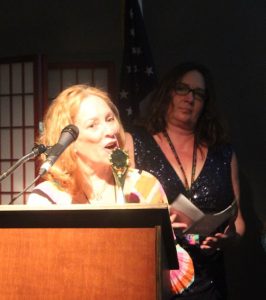 [The foregoing description comes from Autism Speaks.]
[The foregoing description comes from Autism Speaks.]
Asperger Syndrome is one type of autism. April 2 is World Autism Awareness Day, which has as its mission drawing attention to autism in all of its various forms and iterations.
April 2, 2018.
RELATED POSTS.
- What’s Melissa wearing?
- A gift, synchronicity, the designer and ‘The Dress’
- Red carpet gala celebrates film, filmmakers and film lovers
 About the 8th Annual Fort Myers Film Festival
About the 8th Annual Fort Myers Film Festival- Fort Myers Film Festival to open with ‘Melody Makers’ rock doc
- Photographer Barrie Wentzell in the frame
- ‘Melody Makers’ director Leslie Ann Coles in the frame
- “What is Classic Rock’ is all about the music
- ‘Don’t Sell My Guitars’ love letter by filmmaker Lynn Montgomery to her dad
- ‘The Maestro’ looks at post-World War II Hollywood film composers
- The Maestro’s Mario Castelnuovo-Tedesco in the frame
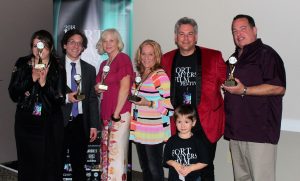 ‘Let It Shine: The Story of the Women’s March SLO’
‘Let It Shine: The Story of the Women’s March SLO’- ‘Kids News’ a tribute to Naples’ Judy Lawrence
- Fort Myers Film Festival to screen sensational new Ruth Bader Ginsburg doc
- ‘RBG’ doc filmmakers Betsy West and Julie Cohen in the frame
 ‘NOA’ enigmatic film about the price of freedom
‘NOA’ enigmatic film about the price of freedom- ‘NOA’ filmmaker Angel Barroeta in the frame
- ‘NOA’ leading actor Hunter Hall in the frame
- ‘GAUZE: Unravelling Global Healthcare’ takes fear out of falling ill abroad
- ‘GAUZE’ filmmaker Suzanne Garber in the frame
- ‘Lost Springs’ documents one artist’s quest to capture Florida springs drowned by purposeless dam
 ‘Lost Springs’ filmmaker Matt Keene in the frame
‘Lost Springs’ filmmaker Matt Keene in the frame- ‘Lost Springs’ artist Margaret Ross Tolbert in the frame
- Florida photographer Karen Glaser also focuses on North Florida springs
- ‘Arcade Creek Project’ doc tells story of Cal high school students working to save dying ecosystem
- ‘Arcade Creek Project’ filmmaker Jierel Almario in the frame
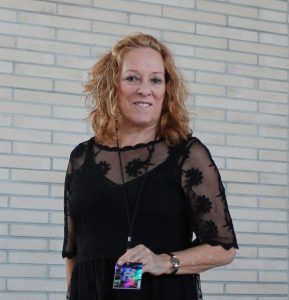 Beautifully shot, ‘Carol’s Last Chance’ depicts soon-to-be father runnin’ against the wind
Beautifully shot, ‘Carol’s Last Chance’ depicts soon-to-be father runnin’ against the wind- ‘Carol’s Last Chance’ filmmaker Jordan Axelrod in the frame
- ‘Morning Light Seems the Brightest’ a short indie from talented newcomer Melina Valdez
- ‘Boys School’ tells harrowing tale of 111 years of abuse, rape and murder
- ‘Boys School’ writer and director Ric Acevedo in the frame
- ‘The Age of Imitation’ explores desire, delusion and the naivety of millennial artistic ego
 ‘Full Circle’ documents NFL receiver Anquan Boldin’s efforts to help those in need
‘Full Circle’ documents NFL receiver Anquan Boldin’s efforts to help those in need- ‘Our New President’ revisits Trump’s election and fake news – from Russia’s perspective
- ‘Our New President’ filmmaker Maxim Pozdorovkin in the frame
- ‘Mullet and Mangroves’ to be shown on lawn at Ford Estates Friday night
- Main Sail’s ‘Mullet & Mangroves’ tells story of Cayo Costa’s early pioneers
- Friends of Cayo Costa State Park in the frame
- ‘Mullet & Mangroves’ filmmaker Ilene Safron Whitesman in the frame
 During troubled times, ‘Miss Bonita Springs 1967 is a candy bar for the mind
During troubled times, ‘Miss Bonita Springs 1967 is a candy bar for the mind- 8th Annual Fort Myers Film Festival best films
- ‘Melody Makers’ takes top honors as Best Documentary at 8th Annual Fort Myers Film Festival
- ‘Bad Kiwis’ wins best Short Short film at 8th Annual Fort Myers Film Festival
- ‘Bad Kiwis’ filmmaker, writer and actor Deb Foster in the frame
- ‘Bad Kiwis’ filmmaker, writer and actor Rebecca McFadzien in the frame
 Axelrod’s ‘Carol’s Last Chance’ is Fort Myers Film Festival’s ‘Best Short’ film
Axelrod’s ‘Carol’s Last Chance’ is Fort Myers Film Festival’s ‘Best Short’ film- Anquan Boldin doc chosen ‘Best Student film’ by 8th Annual Fort Myers Film Festival
- ‘What’s the Point?’ wins Audience Choice award at 8th Annual Fort Myers Film Festival
- ‘What’s the Point?’ co-star Cassidy Reyes in the frame
- ‘What’s the Point?’ co-star Kaycie Lee in the frame
- During troubled times, ‘Miss Bonita Springs 1967 is a candy bar for the mind
- ‘Sac de Merd’ pokes fun at dates gone horribly wrong
- Documentary ‘Talia’ wins Best Local Film honors at Fort Myers Film Festival
- ‘Talia’ subject Tal Anderson in the frame














 Tom Hall is both an amateur artist and aspiring novelist who writes art quest thrillers. He is in the final stages of completing his debut novel titled "Art Detective," a story that fictionalizes the discovery of the fabled billion-dollar Impressionist collection of Parisian art dealer Josse Bernheim-Jeune, thought by many to have perished during World War II when the collection's hiding place, Castle de Rastignac in southern France, was destroyed by the Wehrmacht in reprisal for attacks made by members of the Resistance operating in the area. A former tax attorney, Tom holds a bachelor's degree as well as both a juris doctorate and masters of laws in taxation from the University of Florida. Tom lives in Estero, Florida with his fiancee, Connie, and their four cats.
Tom Hall is both an amateur artist and aspiring novelist who writes art quest thrillers. He is in the final stages of completing his debut novel titled "Art Detective," a story that fictionalizes the discovery of the fabled billion-dollar Impressionist collection of Parisian art dealer Josse Bernheim-Jeune, thought by many to have perished during World War II when the collection's hiding place, Castle de Rastignac in southern France, was destroyed by the Wehrmacht in reprisal for attacks made by members of the Resistance operating in the area. A former tax attorney, Tom holds a bachelor's degree as well as both a juris doctorate and masters of laws in taxation from the University of Florida. Tom lives in Estero, Florida with his fiancee, Connie, and their four cats.